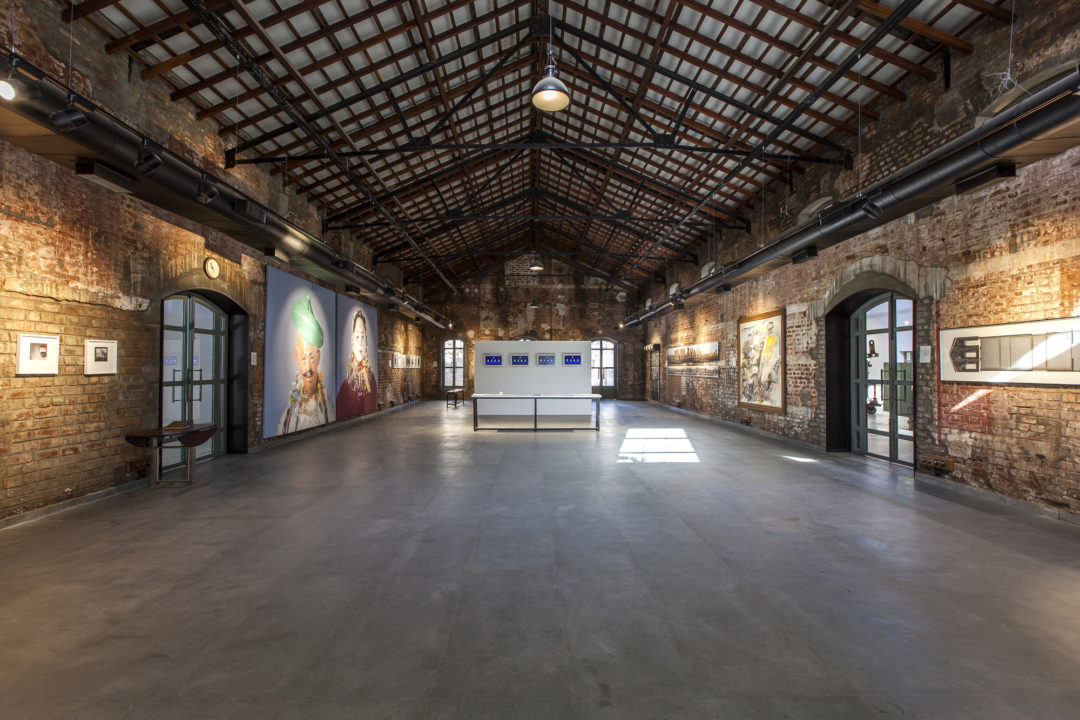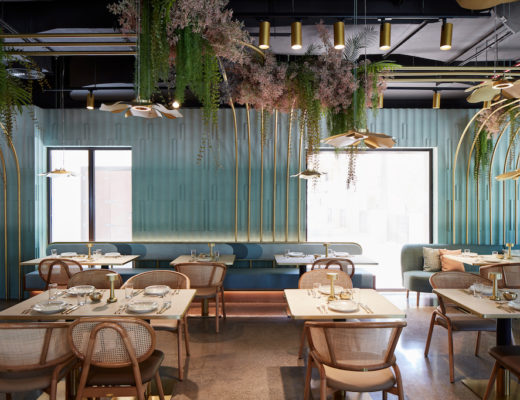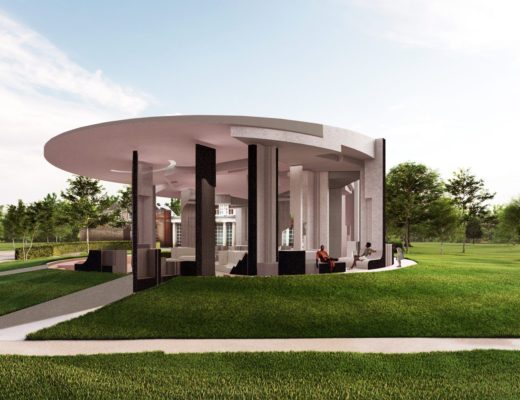A disused Alembic Pharmaceuticals factory located in the middle of the city and along the main railway line of Vadodara in India’s western province of Gujarat has been transformed into an arts and culture complex by the city-based architectural practice Karan Grover and Associates.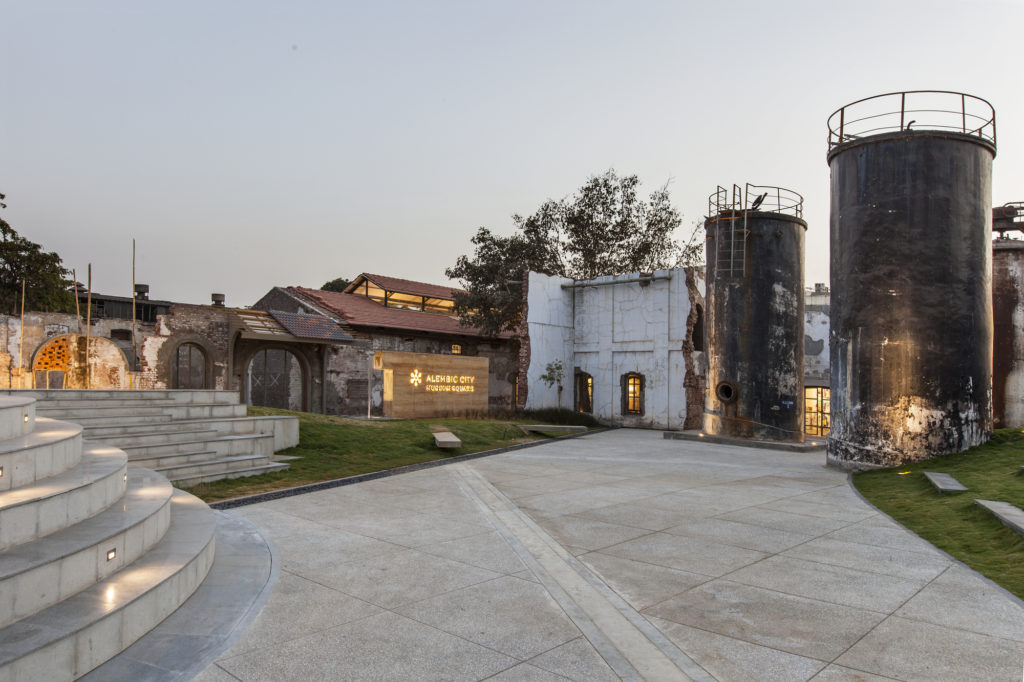
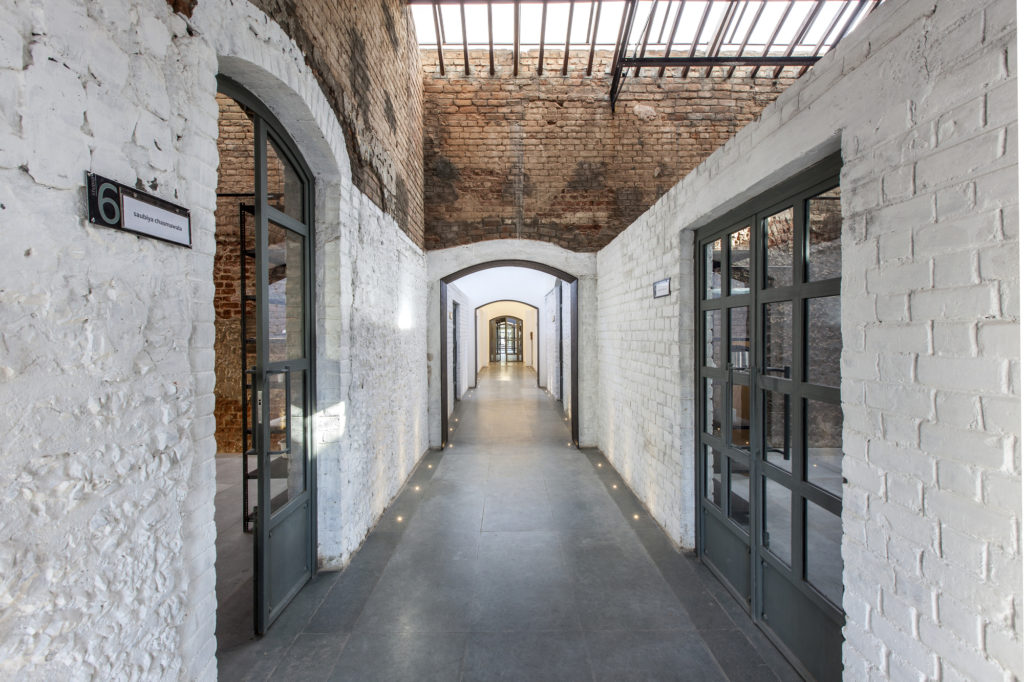 In the past decades, the 12,915sq ft structure has seen multiple interventions as is the case with many old factory buildings, due to changes in the original purpose of the facility over the course of time. From penicillin to alcohol manufacturing, the building now houses the Alembic Museum, art studios, display and exhibition space with ancillary spaces for a library, AV room, and a café.
In the past decades, the 12,915sq ft structure has seen multiple interventions as is the case with many old factory buildings, due to changes in the original purpose of the facility over the course of time. From penicillin to alcohol manufacturing, the building now houses the Alembic Museum, art studios, display and exhibition space with ancillary spaces for a library, AV room, and a café.
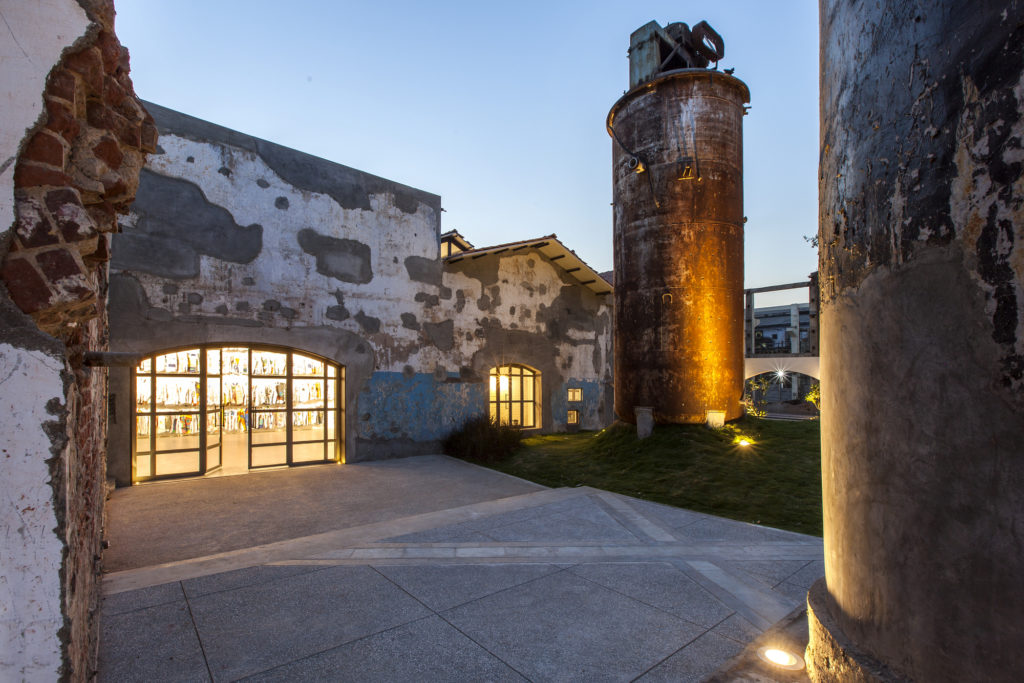
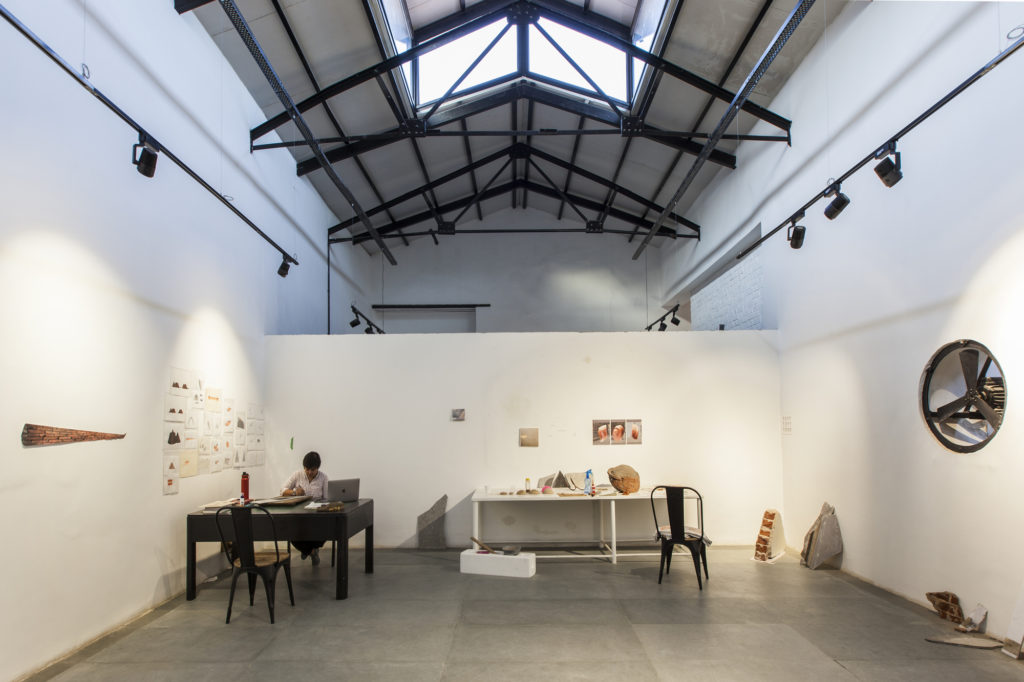 “Our architectural purpose was to maintain the true spirit of the building in terms of materials and the physical quality of the space,” says the team. “The only new architectural elements are new partition walls in between studio spaces.
“Our architectural purpose was to maintain the true spirit of the building in terms of materials and the physical quality of the space,” says the team. “The only new architectural elements are new partition walls in between studio spaces. 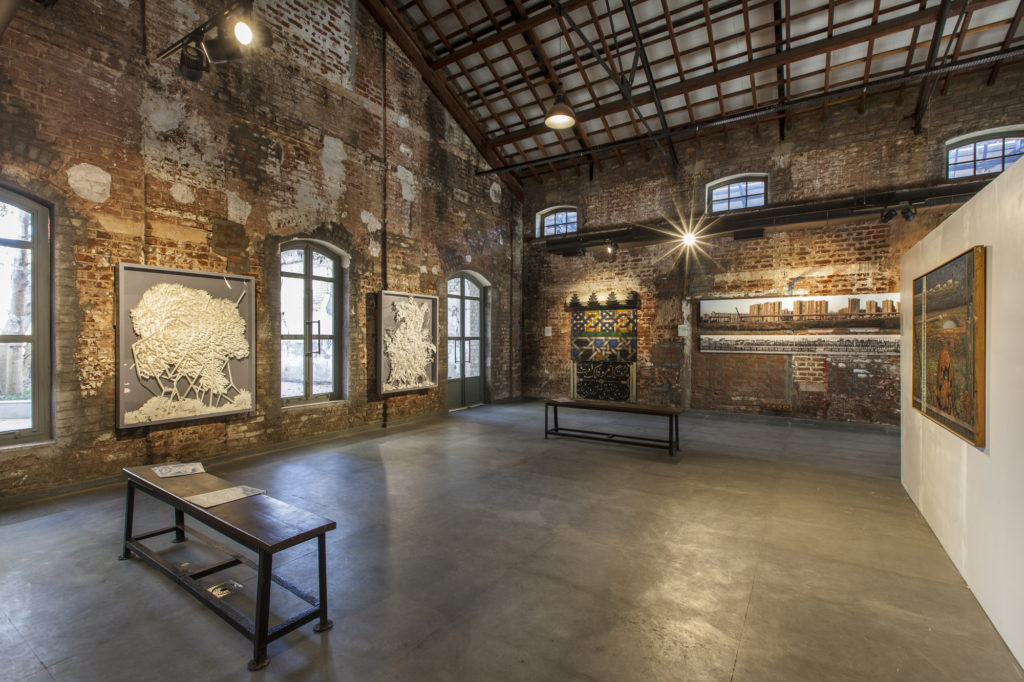
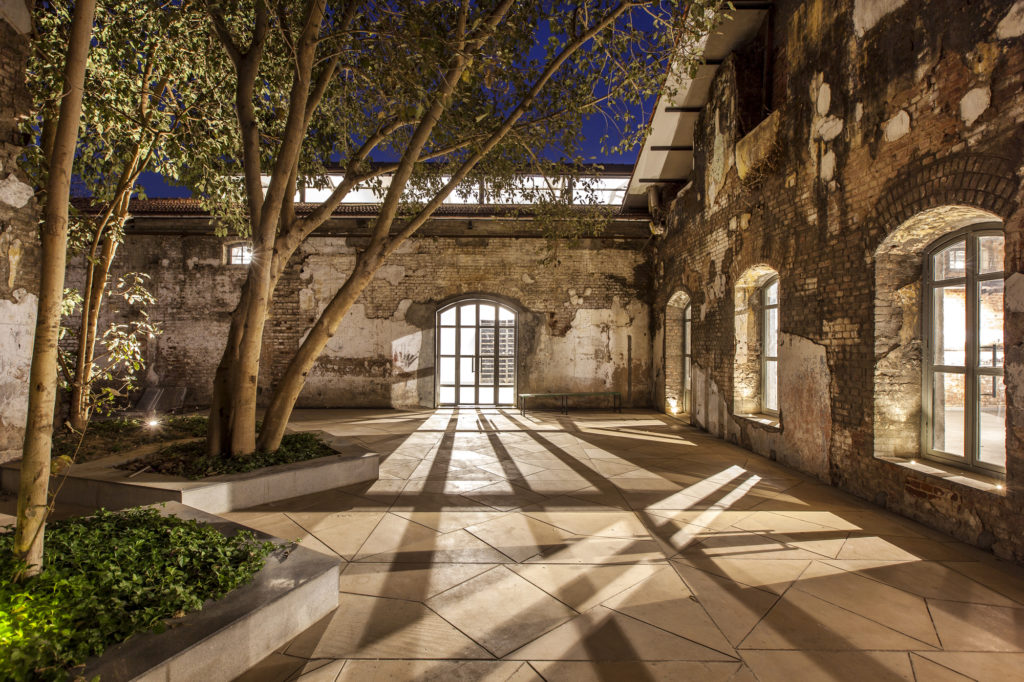 The existing building is characterised by arches, which had been blocked. We opened up as many arches as possible, keeping in mind the structural suitability. The thickness of the main load-bearing walls averages at 0.45m and provides the interior with excellent insulation. We are in the process of creating samples for the finish of the walls.”
The existing building is characterised by arches, which had been blocked. We opened up as many arches as possible, keeping in mind the structural suitability. The thickness of the main load-bearing walls averages at 0.45m and provides the interior with excellent insulation. We are in the process of creating samples for the finish of the walls.”
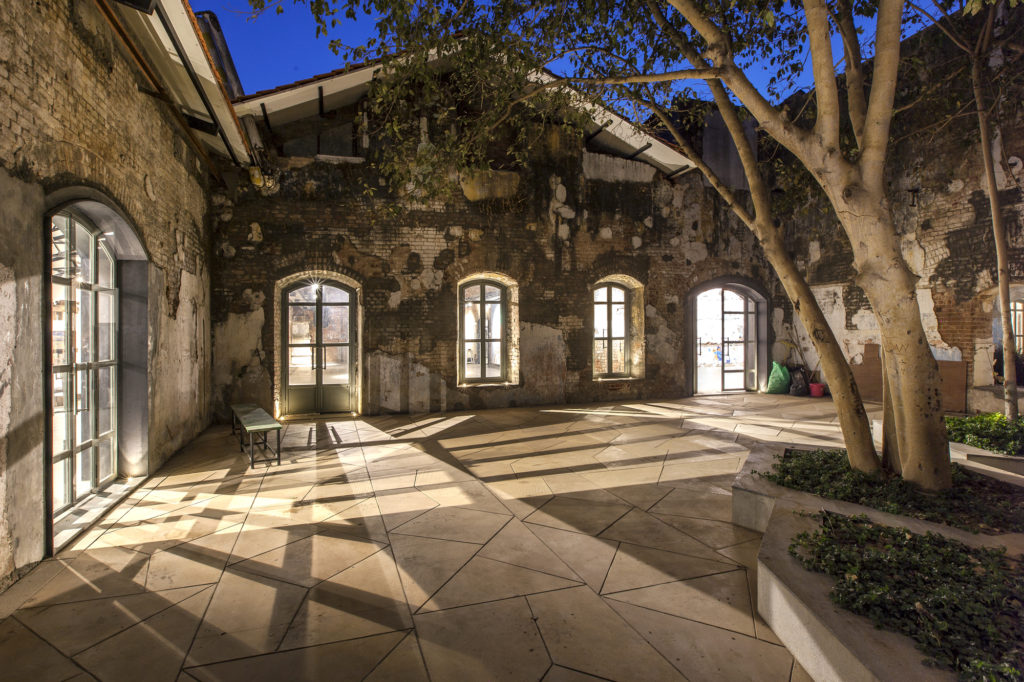
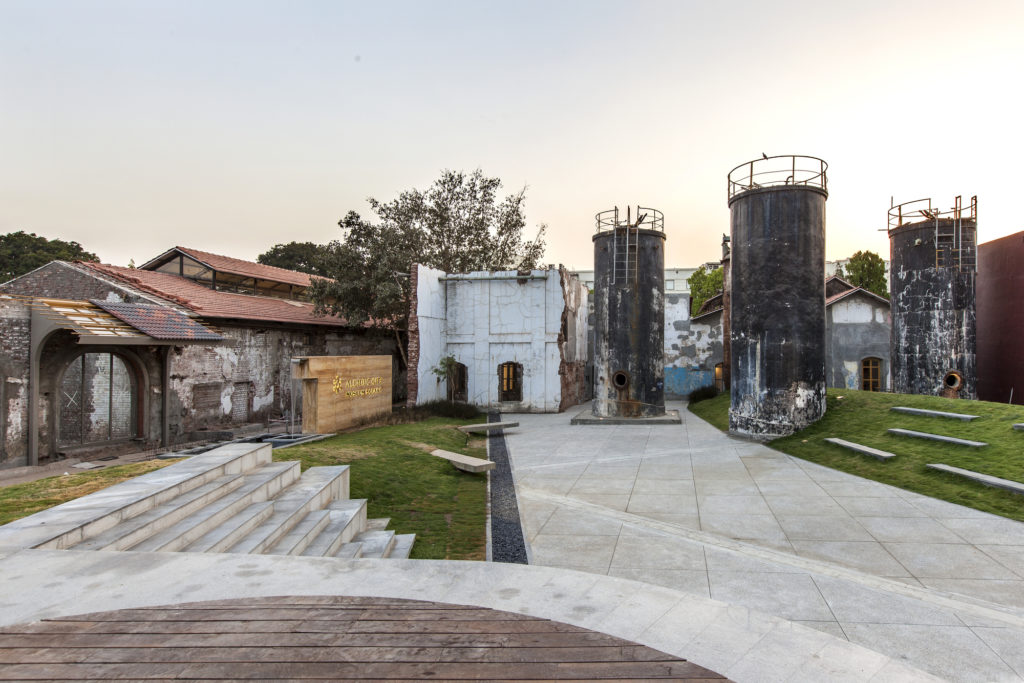 Another architectural highlight is the roof design. “The trusses are riveted as opposed to being welded, which makes for quite an interesting detail,” says the design team. “Fortunately, most of the trusses are in great condition, and only a handful will require strengthening. The existing exterior roof material is of Mangalore tiles which are battered and will need to be replaced with new ones. It will also add insulation above the top-chord of the truss. We are very keen to leave the purlins and rafters exposed to express the quality of the structure that it once was. The re-development of the industrial area will see major interventions in other parts of the campus.”
Another architectural highlight is the roof design. “The trusses are riveted as opposed to being welded, which makes for quite an interesting detail,” says the design team. “Fortunately, most of the trusses are in great condition, and only a handful will require strengthening. The existing exterior roof material is of Mangalore tiles which are battered and will need to be replaced with new ones. It will also add insulation above the top-chord of the truss. We are very keen to leave the purlins and rafters exposed to express the quality of the structure that it once was. The re-development of the industrial area will see major interventions in other parts of the campus.”
Images courtesy: Esha Daftari, Nilanjan Roy

